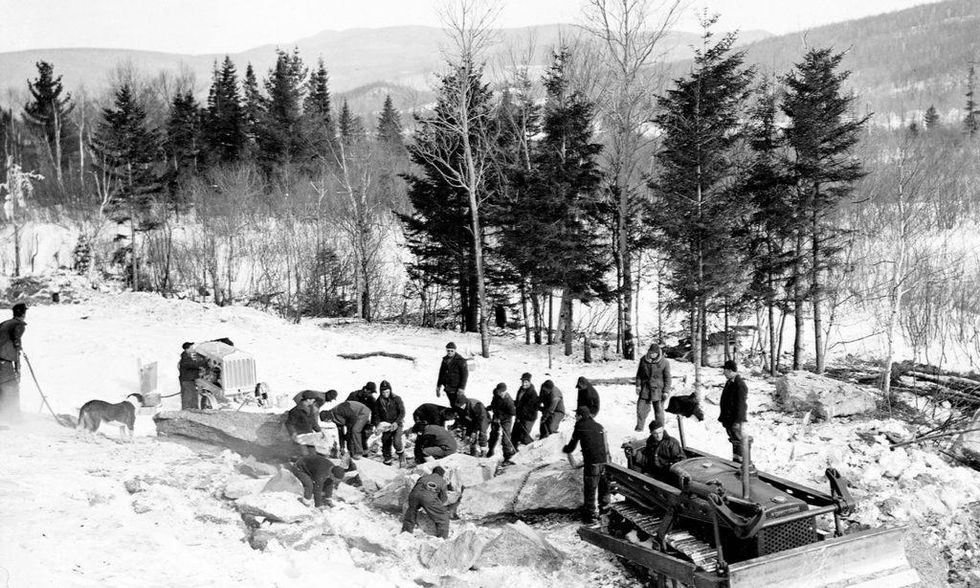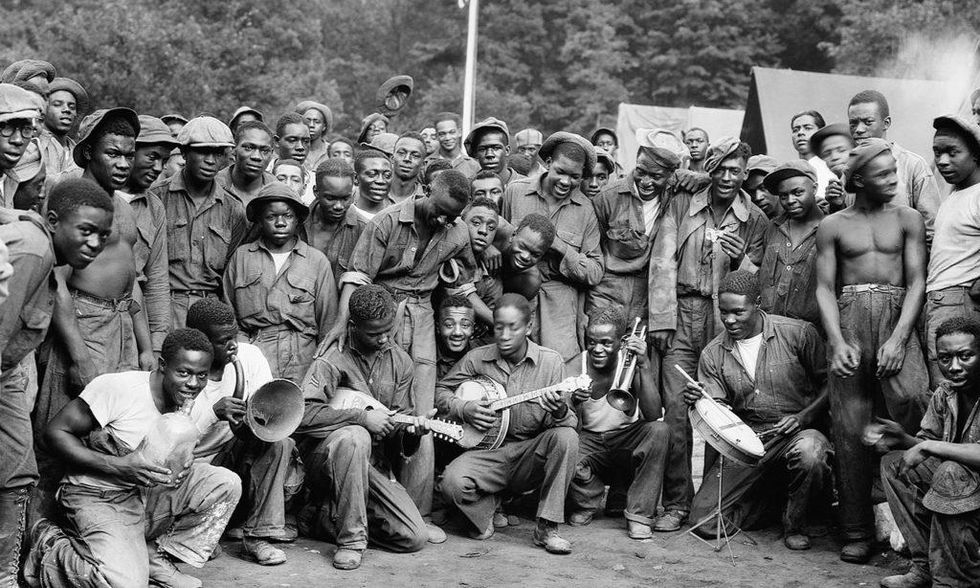During his first 100 days in office, President Joe Biden will face three deepening crises involving a global pandemic, economic stagnation, and continuing disruptions caused by climate change. While this perfect storm of social, economic, and environmental emergencies may feel unprecedented, Americans during the 1930s faced a similar triple threat.
The Great Depression caused a 25% unemployment spike, which resulted in widespread economic and social hardship. At the same time, President Franklin D. Roosevelt became increasingly alarmed by flooding along several major rivers, extensive deforestation, and, in 1934, the infamous Dust Bowl.
To tackle these emergencies simultaneously, during his first 100 days in office, FDR created the Civilian Conservation Corps, which would reinvigorate the national economy by putting millions of young men to work planting trees, conserving soil, and building parks. "In creating the CCC, we are killing two birds with one stone," the president explained in one of his famous fireside chats. "We are conserving not only our natural resources but also our human resources."

The Biden administration should take a page from FDR's playbook and immediately create a new and improved CCC. The majority of Americans support such a move, according to new polling from Data for Progress and The Justice Collaborative Institute, which found that 79% of likely voters--including 80% of Democrats and 74% of Republicans--support reviving the corps.
For a new corps to succeed today, however, it must build on the original program's accomplishments while avoiding its pitfalls.
During its nine-year existence, from 1933 to 1942, the CCC succeeded on the economic, environmental, and social fronts. Financially, it gave jobs to more than 3 million unemployed Americans who earned about $700 million (more than $10.5 billion today). The corps was equally successful in its conservation efforts, planting more than 2 billion trees, slowing soil erosion on 40 million acres of farmland, and creating 800 new state parks while developing dozens of national parks across the country. Last but not least, working hard in the "great outdoors" helped to restore the physical and psychological health of the program's enrollees.
Yet the original CCC also made significant missteps. It excluded women and older men, assigned African American enrollees to segregated camps, and placed Native people into a separate program. The corps stumbled environmentally as well, by undertaking some ecologically destructive projects such as draining swamps for mosquito control and introducing invasive species to conserve soil. Even on the economic front there were problems. The great majority of CCC projects, such as soil work on agricultural lands and the development of parks for recreational tourism, benefited mostly White residents in rural communities.

A revived Civilian Conservation Corps must acknowledge and improve on this complicated history. First and foremost, it must be more socially and racially inclusive and accept enrollees regardless of gender, age, skin color, and marital status. A new CCC must also diversify geographically, by locating its work projects and enrollee camps more equitably throughout the country, to ensure that urban and suburban communities can also benefit. Finally, a new corps must be guided by scientific experts to avoid the environmental blunders of the original program.
An updated CCC should also expand its efforts to tackle environmental justice problems that have arisen since the 1930s, many of them in urban neighborhoods. Remediating toxic waste sites, mitigating pollution, and developing urban outdoor recreational spaces and gardens are just a few examples. Perhaps most importantly, a new CCC should focus on the most pressing environmental problem of our age: climate change. The corps could help develop green energy systems, from solar panel installations to wind farms, and build climate-resilient infrastructure by restoring wetlands and constructing green stormwater management systems for cities. All of this work would also train those joining the program for jobs in the emerging green energy sector.
Federal lawmakers have recently proposed reviving the national CCC, and when Joe Biden is inaugurated he should follow their lead. Illinois U.S. Sen. Dick Durbin has introduced the RENEW Conservation Corps Act, which proposes putting 1 million unemployed Americans to work on conservation and recreational projects over the next five years. The bill improves on the original CCC in several important respects: All citizens and legal permanent residents over the age of 16 would be eligible to enroll; projects would involve the conservation of natural resources as well the mitigation of climate change; and work projects would benefit rural, suburban, and urban communities. Finally, in exchange for one year of service, all enrollees receive credits they can use towards their postsecondary education. A renewed CCC could also function safely during the COVID-19 crisis by housing enrollees, much as the original corps did, in camps that are isolated from high-density communities. In doing so, a new and improved program would generate jobs to revive the economy while undertaking necessary work to fight the effects of climate change. It would similarly benefit those involved by providing them not only with a paycheck, credit for their education, and skills for jobs in the private sector, but also with a sense of personal accomplishment, community involvement, and shared civic purpose after four long years of debilitating political divisiveness.



